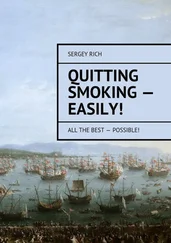I have a good deal more to say about this 200-page section in itself (especially about the roadhouse scene as the proper end to this separate publication), but it is pointless to do so until you have the mss. [ sic ] at hand and have read some of it.
I also want to answer your letter in detail as soon as I have time. One point worth mentioning in advance is that the question of matching another publisher’s advance is beside the point. Whether I am worth what I am told by some publishers I am worth I may never know; they say they would spend from five to ten thousand dollars advertising a novel of mine. Not only would you not do this, but the organization of ND gets worse all the time and you have just put it all in the hands of one who, though a fine person in many ways, has just been running it into the ground because of ignorance, hysteria, and neuroses unequalled on the Eastern Seaboard. The only reason you put it in her hands is that you are busy with the ski hotel: What reason has anyone to believe that you will not always be busy with something else besides ND? 4It strikes me that the whole thing would be much better moved completely to Hollywood, since you obviously intend to be in Utah most of the time. In fact, that seems to me the only possibly reasonable arrangement, moving everything including E. S. (who would do well enough with a superior nearby) near you. ND needs you as a bow needs an arrow. However, be this as it may, it is nothing I intend to do anything about until I give you a novel.
Another thing I ought to answer right now, since it may shine on the mss. I am sending is that, lucky or not (and I was not very lucky with Rimbaud, for if I had not been at Yaddo because of poverty I would have shown it to someone at Columbia), and intrinsic merit apart, it should be clear to you by now that what I write attracts a great deal of attention (did you, for example, see the spread for Shenandoah in Sunday’s Times? ). Perhaps it is a streak of vulgarity or something else, but almost everything I have published has rung the gong for four years; the instance of the translation shows that it is not my beautiful eyes or winning personality or Aryan background which is responsible; it is the work itself, whether for the wrong reasons or not I do not know.
Please read the mss. as soon as possible and with the best attention. Printing this first part will solve many problems at one stroke. I will try to get a final version to you quickly; don’t let rough spots here and there throw you off.
Yours,
Delmore
To James Laughlin
Thursday, 11 a.m.
Jan. 7, 1942
Dear Mr. Laughlin:
Henceforth I will communicate with you in the cold objective style. This may or may not prevent you from remarking from Norfolk to romantic Alta that I am a drunkard. Your new method of getting at me and insulting me appears to be imputation. First, I play the part of Judas and write the Advocate review; then I write when drunk. I drink only to get to sleep when I have been writing all day; to drink at any other time would be a waste because I would then have to drink so much more to sleep.
Send me back my two Monday letters, so that I can make out what it is, except an epistolary style modelled or rather inspired by yours, that made you think I was drinking. Also send me back my poem. I want both these things and I want them very much, so let us not argue about it.
Answer me about Kazin: Did you tell him I was going to review his book? I take it you are not interested in the story; this suits me, since I can get paid for it now. Also I demand a retraction again; what makes you think you can call me a traitor and schemer in that way without offense?
Why won’t you be persuaded that jacket quotes are dangerous in this case? First, you may not even be able to get them because even those who much admire me think I have already been praised too much for a young man. Second, the reviewers will spend their time fighting the jacket quotes. Third, I can’t postpone reviews and poems beyond March, and if I don’t do them, the editors will be displeased with me. Fourth, the reviews I’ve already persuaded some of my friends to write on the ground of your putative campaign against me won’t be written because of the delay and also because the jacket quotes will make it clear that there never was a campaign, only resentment, expressed loudly to you because it is thought that I have influence with you.
Never was there anyone so influenced by momentary fashions as you. Just because quotes work with Villa, you think it will do good in quite a different case, a long poem in which such a one as Louise Bogan will think this is her last chance of stopping me this side of immortality. If you visit the right editors, then we will get honest and sympathetic reviews, and this book can get along on its own speed.
The decision, perforce, is yours, but you’ll be sorry if this book is not an immediate success because you won’t want to meet the offers I’ve gotten and can get from other more well-to-do publishers when my novel is finished, as it probably will be by fall. I can get three thousand dollars instead of three hundred for a novel and in addition not be insulted as a drunkard, nor terrified by imaginary campaigns against me; nor would I have to fight to get the proper amount of advertising for a novel, namely, an amount which exceeds what you spend on all your books.
I have all the fame I want for the time being; now I want power to protect it or money and probably both. If this seems a drunken statement to you, come to Cambridge and I will make it in person after walking a straight line.
As for Arthur, I like him, but never admired him because he has nothing but his capacity to flatter. In that Kenyon review, he praised all who might do him good and damned those who could not harm him, such as poor Berryman.
For example, in sneering at those who praised Villa, he carefully omits to mention Van Doren, whose boots he has already licked earlier in the review. He kicks Berryman in the face, but is careful to put in a soothing word to me. Next time you see him, ask him how the shoe polish tastes which the Tates use. You can get a certain distance by bootlicking, if you have talent. Arthur has nothing but glibness; I suppose I ought to be sorry for him, because they scared him at Yale and it must be hard to be a Mizener and Moore in a time of raging anti-semitism. But I am sorrier for Berryman who does have talent. Another instance of your fickleness: Last year, on reading his poems, you told me you thought he was really first-rate. Now Arthur says no, dishonestly, and you change your mind. Why are you so unsure of your own taste? Who scared you?
We must get another picture, or the old one may be used and I am sick of being kidded about that and also disappointing the Radcliffe girls. I am nervous and sensitive, and don’t want to be kidded.
Furthermore, I am going to get a five-year contract from Harvard in May. One possibility which may interest you is that the Army may put all instructors into uniform and make them officers (since most of the students will be in uniform and it has been difficult to maintain discipline at training schools with civilian instructors). The classes will march into school in platoons and the first time this happens I will doubtless turn and run into the blackboard, thinking, Jay was right after all, there was an organized campaign against me, there are Patchen, Prokosch, and Barker coming to shoot me down.
As for Williams and his light o’love, this is an example of how your wish to have everything is impossible of realization. You say you want only good poems and an anthology with staying power. In the same paragraph, you say you want Patchen, Brown, and God knows what other bad poets included, all in 128 pages. How can this be? Will you explain? A good anthology full of bad poets? It might be done if we had four hundred pages. But 128 pages? It is you that must be drinking, James.
Читать дальше












